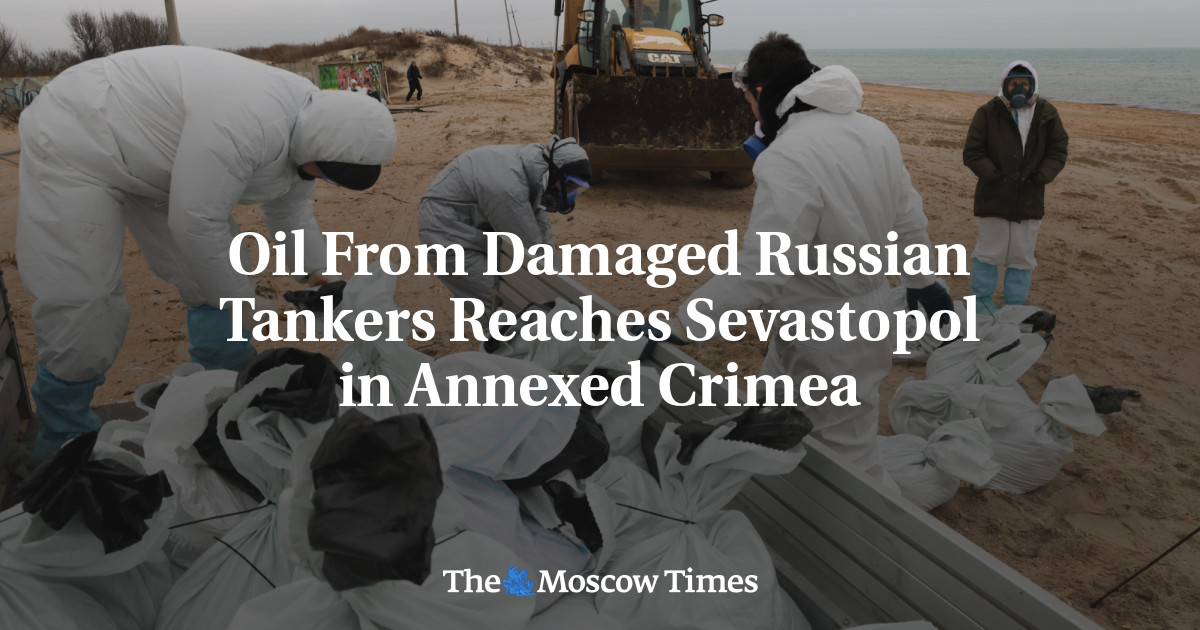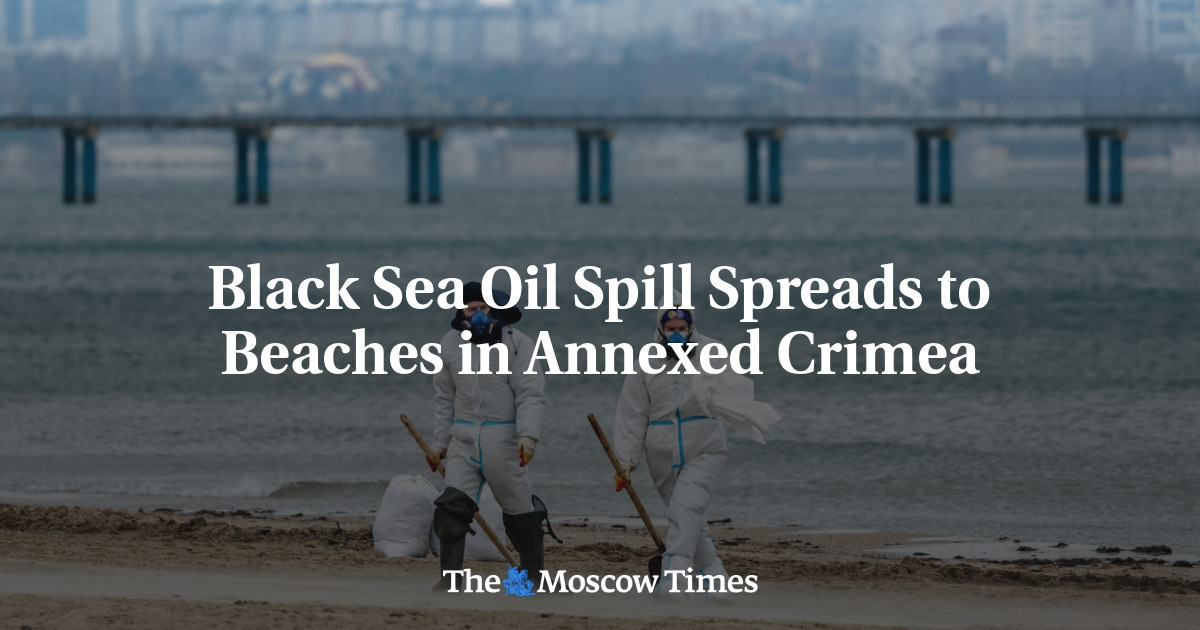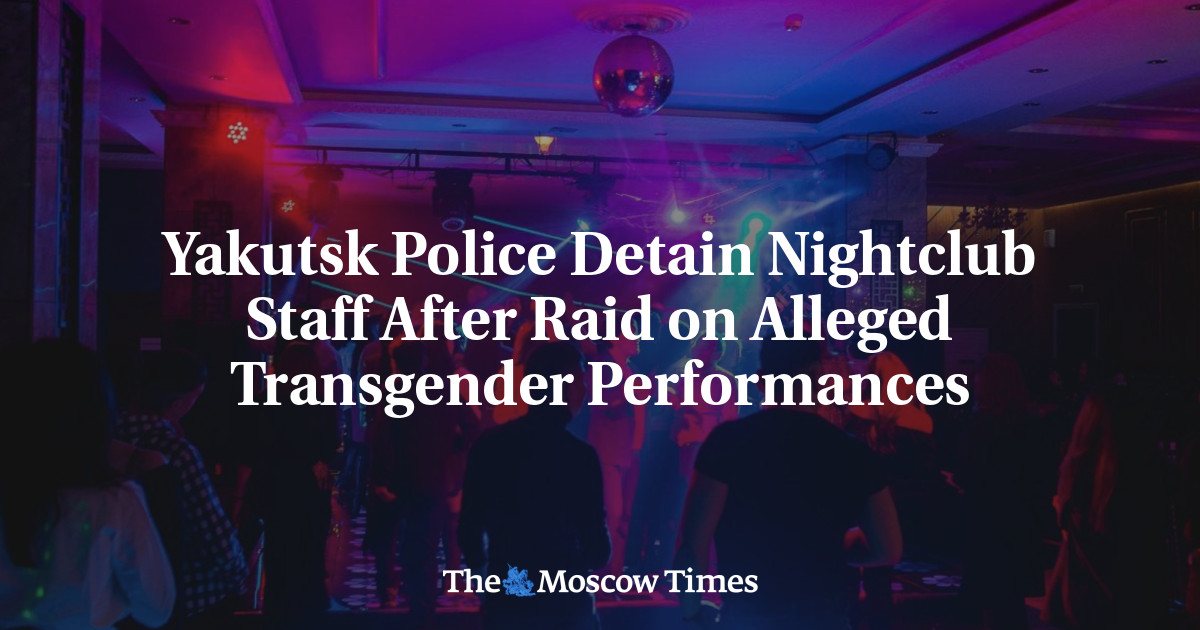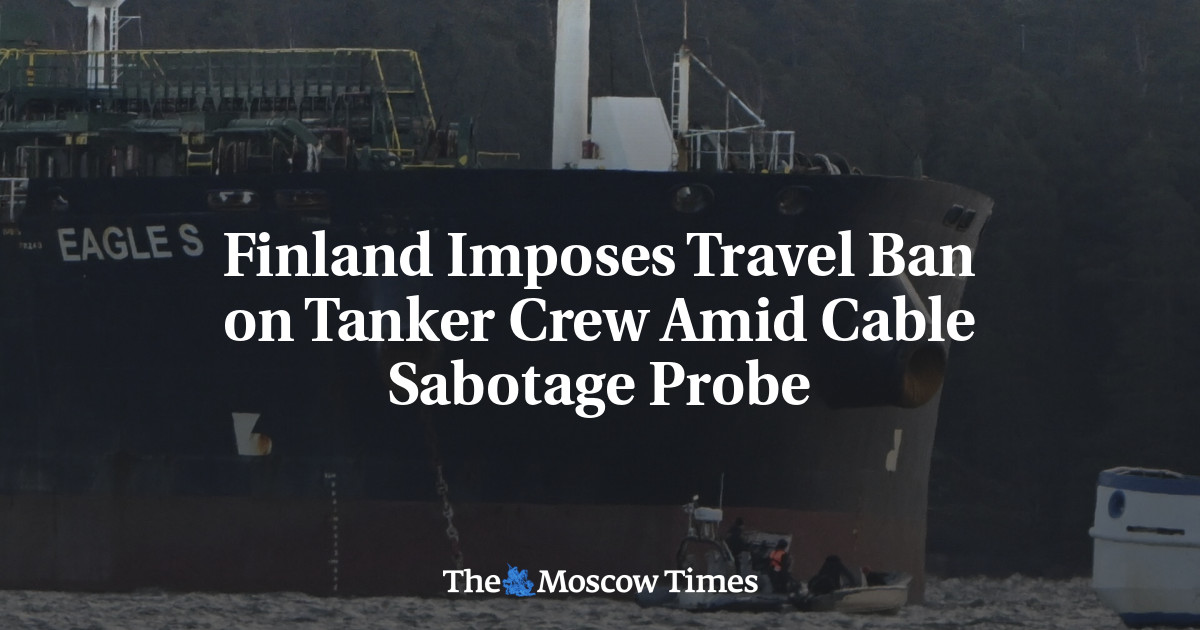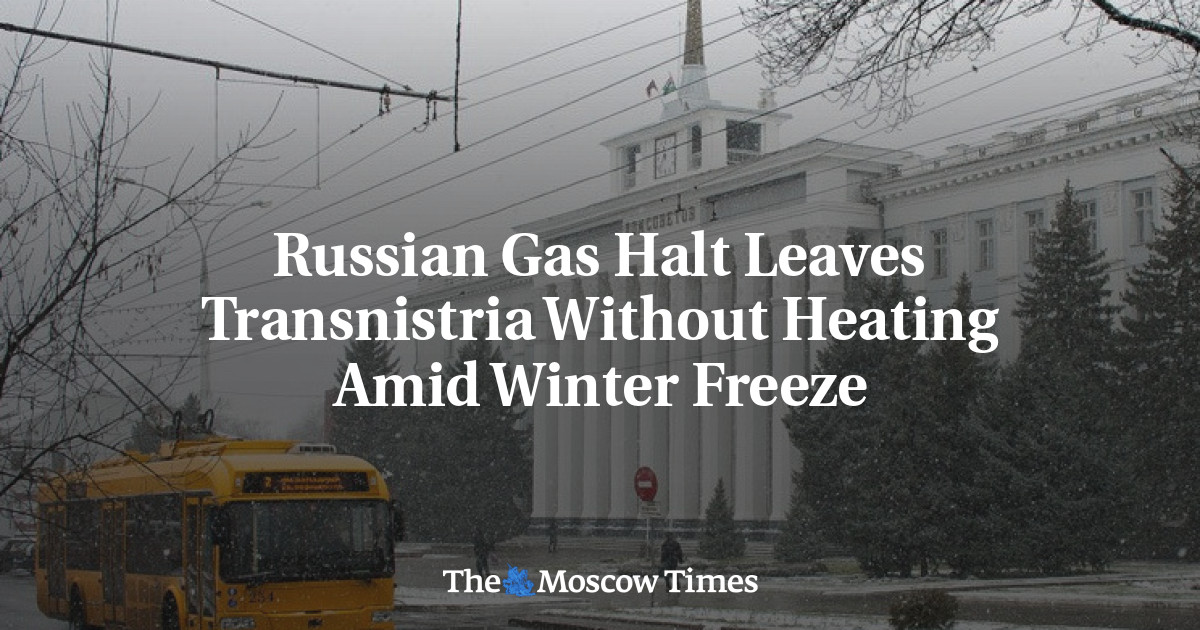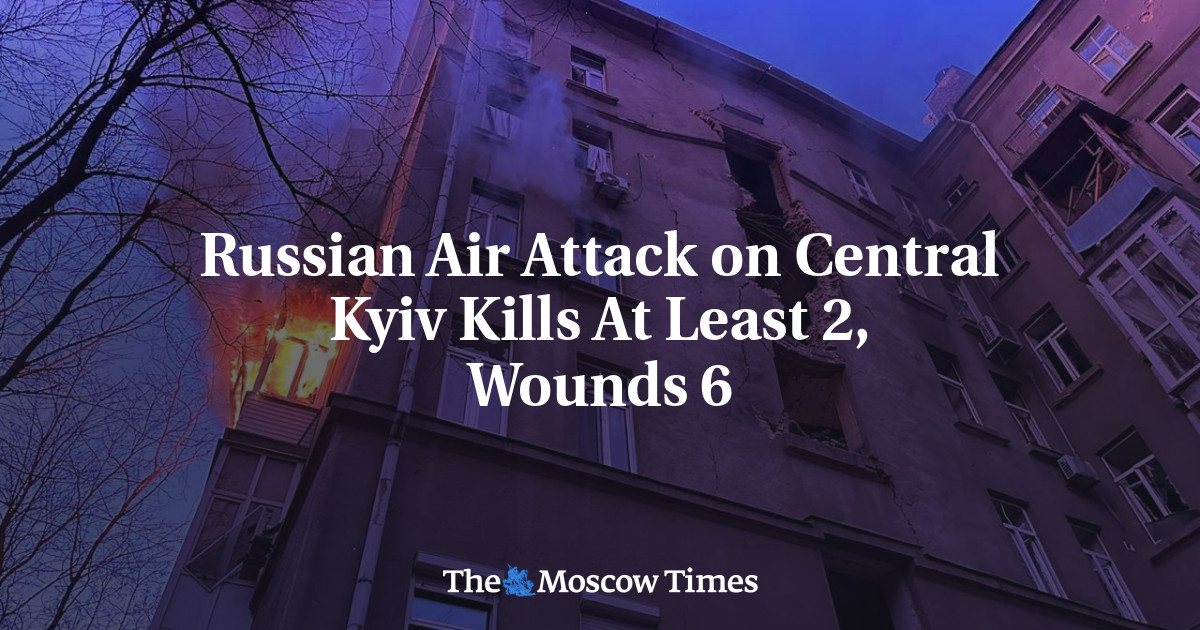VILNIUS, Lithuania — Thousands of Russian opposition activists fled to Lithuania’s capital following the Kremlin’s 2022 invasion of Ukraine, seeking safety from the political crackdown quickly sweeping their home country.
That sense of safety was blighted when Leonid Volkov, a close aide of late opposition leader Alexei Navalny, was attacked near his home with a hammer and tear gas Tuesday night, leaving him with a broken arm.
The attack — unprecedented in Lithuania’s modern history — has sparked a mix of fear and concern among the local Russian emigré community.
“We were shocked that this happened in the European Union, in Lithuania, which has tightened its entry rules for Russians so much,” Anastasia Goft, the coordinator for Navalny’s Vilnius headquarters, told The Moscow Times.
She pointed to the attack’s timing, just weeks after Navalny’s death in an Arctic penal colony that his supporters have blamed on President Vladimir Putin.
Volkov himself called his targeting “an obvious, typical, gangster greeting from Putin, from bandit St. Petersburg.”
Lithuania said it suspected Russian special services were behind an attack, calling it an act of “political terrorism” and an attempt to thwart the Russian opposition’s activities during this weekend’s “undemocratic” presidential election.
Vilnius, a staunch ally of Kyiv, has taken a number of steps to restrict entry to Russian citizens since Moscow’s invasion of Ukraine over two years ago.
“Before this [attack], you could see all the restrictions [on Russian citizens] as security measures to protect independent journalists and politicians from these kinds of attacks,” she said.
“Yet here we are: the restrictions are immense, and they did nothing to stop the attacker, who might as well have been a killer.”
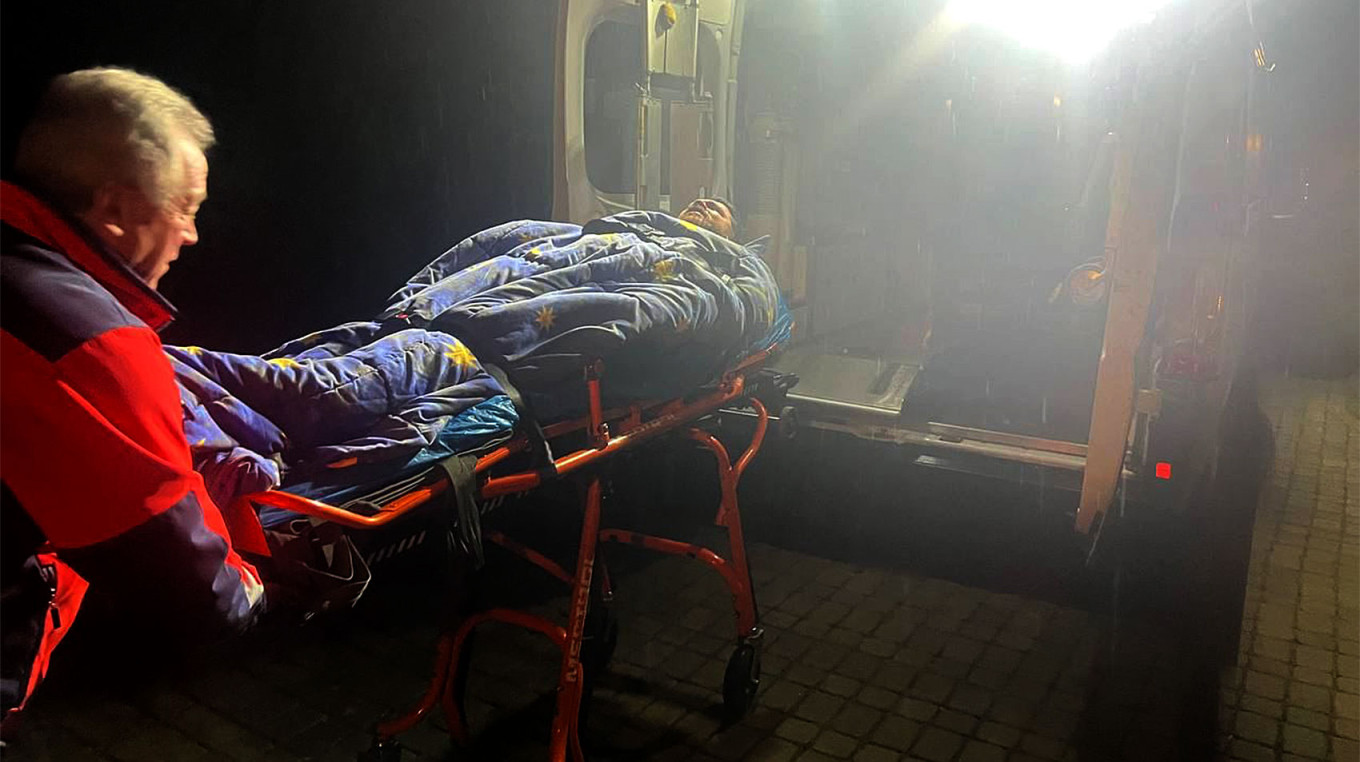 Leonid Volkov is taken to hospital after being attacked.
Ivan Zhdanov / Telegram
Leonid Volkov is taken to hospital after being attacked.
Ivan Zhdanov / Telegram
The assailant, whose identity is still unknown, remains at at large.
“Immediately after the incident, the Criminal Police Bureau took over this investigation. It is really a huge effort, both in terms of analytical capacity and physical capacity,” Lithuanian Interior Minister Agnė Bilotaitė said in a statement.
When asked about the attack against Volkov, the Kremlin said Thursday that it could not comment on the incident since it happened in another country.
"You shouldn't be afraid of Putin. You should respect and listen to Putin," Kremlin spokesman Dmitry Peskov said.
Goft said she believes the attack is not an isolated case. She cited the suspected poisonings last year of Russian journalists Elena Kostyuchenko and Irina Babloyan, as well as Free Russia Foundation head Natalia Arno.
“In each case, the analysis showed traces of neurotoxic substances,” she said.
When asked if she or her fellow activists now feel endangered, she quoted investigative journalist Christo Grozev’s reaction to the attack on Volkov: “The Great Terror of a small dictator has begun, and while we should not be scared, we must be more careful.”
“No matter which security measures will be taken right now, we should remember — the threat is still there,” she said. “We are fighting the great evil — Putin is the unprincipled murderer who never gets punished for his crimes. We knew it since the first assassinations [of Kremlin opponents]. As long as we pose a threat to him, he will never stop.”
Goft said Russian authorities are increasingly attempting to sabotage the work of Navalny’s allies in the run-up to the “Noon Against Putin” protest action they called for Sunday, the final day of voting in the Russian presidential election.
“Just recently, someone was sending out fake letters, pretending to be us. The letters were calling our supporters to join the ‘Noon Against Putin’ later in the day, instead of at midday. We can clearly see that the Kremlin is more concerned than usual.”
She added that this concern might still transpire into more assaults on Russians abroad — not only on Navalny’s team members but also on other politicians, journalists and activists.
Psychotherapist Ekaterina Seredina is one of the latter. She is preparing to coordinate the exit polls near the Russian Embassy in Vilnius on Sunday, the final day of voting in Russia’s presidential election.
“I left Russia after the war had begun so that I would have the option to talk, to not stay quiet,” she said.
“I packed everything and left in a matter of three days just to be able to say everything I think about the war, Putin and his regime from a safe distance. Now I don’t know if this place is as safe as I thought it would be. It scares me, but it’s not enough to stop me.”
However, she said she doubted whether any country was truly outside the Kremlin’s reach.
“The regime in Russia isn’t a threat for Russians and Ukrainians exclusively: it’s a problem for almost everyone on this planet,” Seredina said.
“There is no border capable of stopping Putin from committing crimes. No one can tell for certain where and whom it will strike next time.”
The head of Lithuania’s national crisis management center said the attack was "professional, well-planned and that whoever carried it out was either well-prepared or received very good instructions."
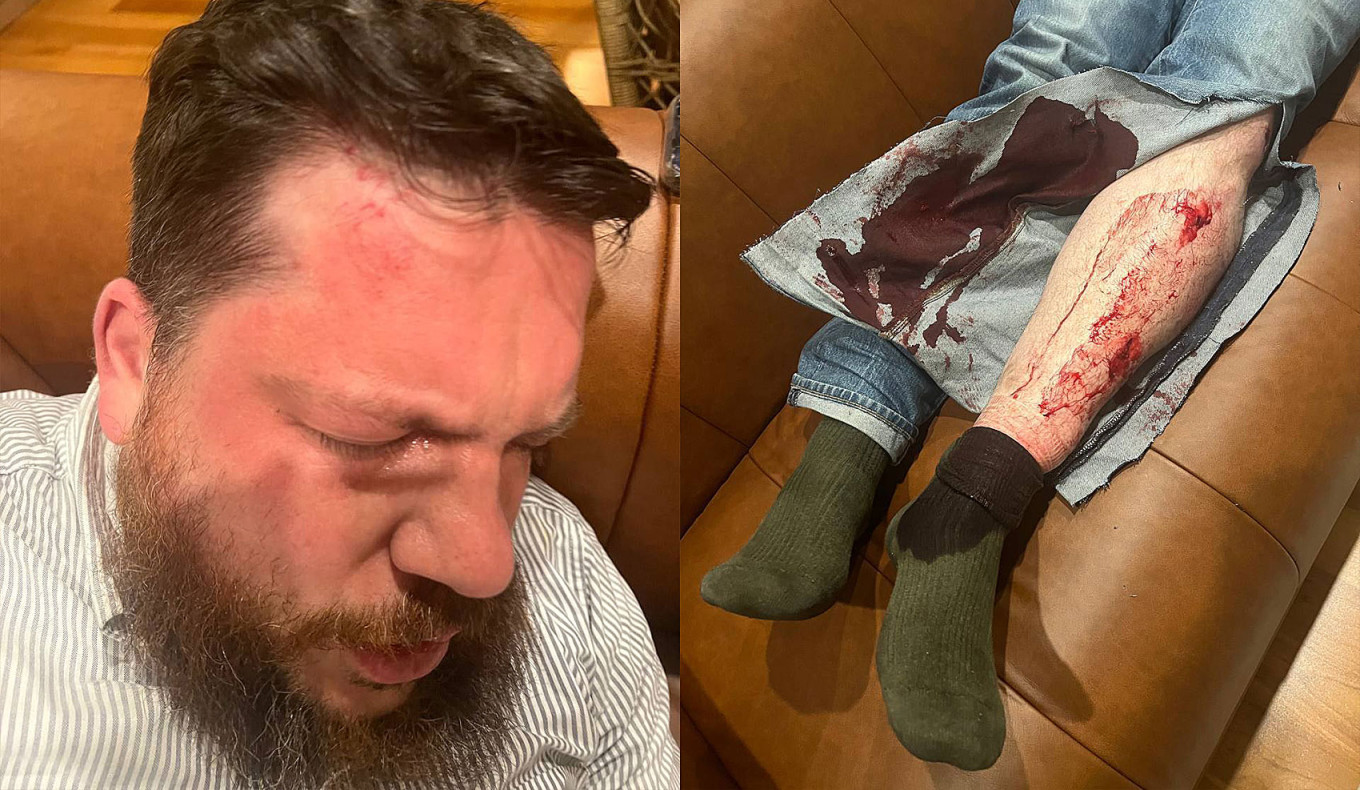 Leonid Volkov's wounds after he was attacked outside his home in Vilnius.
Ivan Zhdanov / Telegram
Leonid Volkov's wounds after he was attacked outside his home in Vilnius.
Ivan Zhdanov / Telegram
Russia’s security forces have been physically harassing opposition activists and politicians inside the country for years, and the attack on Volkov by all appearances comes from the Federal Security Service (FSB) playbook.
The attack on former St. Petersburg municipal deputy Denis Lugowski near his home in 2018 or the storming of a Libertarian Party camping trip in a forest near Krasnoyarsk in 2021 are just a few examples of this practice. In each instance, the attackers were not carrying law enforcement identification.
If Volkov’s attack was carried out by the Russian FSB rather than the intelligence service, which is more often linked to nerve-agent attacks, it would be the first to take place abroad.
Nevertheless, Goft vowed that she and her fellow exiled Navalny allies would not be deterred.
“We are not giving up, and we’ll keep fighting. Yes, we are fighting the greatest evil of our era. Yes, Putin’s regime killed its opponents in the past and will keep killing them. But we need to keep resisting it, as the night is always the darkest before dawn.”
 (1).png)
 9 months ago
21
9 months ago
21
